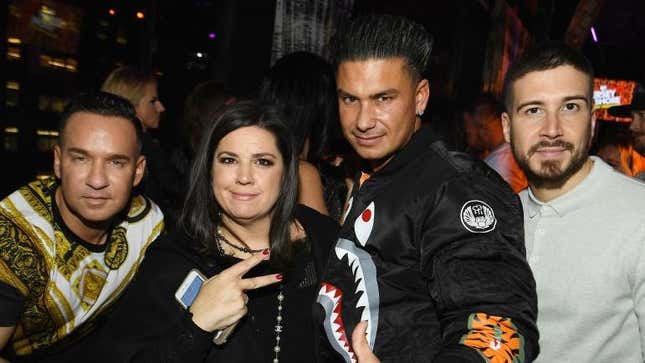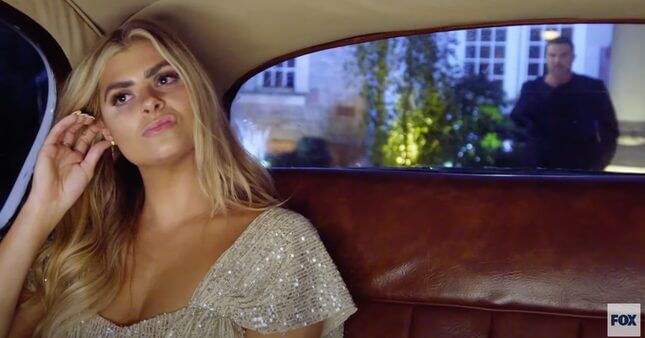Joe Millionaire Producer Discusses Reality TV in the Age of Instagram
Social media influence "shouldn’t be the only reason you go on a show," SallyAnn Salsano tells Jezebel.
EntertainmentTV

Even in our reboot-happy media world, 2003’s Joe Millionaire felt like a show that would be impossible to resurrect. Its premise, which told women that they were in a Bachelor-style romance competition to win the heart of a handsome multi-millionaire when the lead singleton was actually a construction worker who earned $19,000 a year, was openly mean. (It was also tough to replicate; for season two, the show headed to Europe for its cast of young women, now that America was in on the ruse.)
Still, the show is back, now in a gentler guise. On Fox’s Joe Millionaire: For Richer or Poorer, there are two eligible men, rather than one, and the contestants are aware that one is wealthy, while the other is not. As the women compete for their attention and try to sniff out the rich guy, they also have to choose which bachelor they’re interested in. The real world occasionally butts in: In the first episode, a contestant was instantly eliminated after one of the Joes recognized her as being one of his former Hinge matches, which meant that she could reveal him to be the rich bachelor.
Behind this reboot of the un-reboot-able is veteran reality TV producer SallyAnn Salsano. She’s perhaps best known as the creator of Jersey Shore, with its outsized personalities in pint-sized frames, their catchphrases, and felony convictions. Before Jersey Shore’s debut, reality TV stars’ careers often felt even more fleeting than they do today. Unless America fell in love with an astonishing talent, like Kelly Clarkson, most reality performers were ushered into the spotlight, roundly mocked, and escorted offstage. Then came Jersey Shore. Audiences laughed at them, then laughed with them, and then began to book them and buy things from them, paving the way for reality stars-turned-influencers of years to come.
“I’m a reality TV fan first and foremost,” says Salsano. “With a lot of my bosses and stuff that I do, I’ll often say to them, ‘I get it, but I would actually watch this shit.’”
Despite being more honest with its cast, Joe Millionaire: For Richer or Poorer still inhabits a familiar winking TV universe. Its host is styled as an English butler; in real life, he’s a Rod Stewart impersonator. “We had to embrace the fact that there were going to be some naysayers,” says Salsano. “And I think we wanted to almost—the British term would be, ‘Take the piss out of it ourselves.’ Like, come on guys. We know what we’re doing here.”
We talked to Salsano about the Joe Millionaire reboot and about her career in reality TV.
What do you think are the biggest changes in the reality TV landscape since 2003?
I think number one, people know what they’re getting into. I think early on people could very easily be like, “Oh my God, I had no idea.” Now it’s like, how do you not know what goes on on a dating show? You weren’t hatched. This has been happening.
I like that, because I feel like people are coming willing and able. And I think with this particular show, what’s really important is the girls. When you look at these girls and you look at how they’re described in their lower thirds, it’s like, these girls are no joke. I think a lot of people went on these shows to find a husband, and now I think people are going on the show to find a partner. Here’s another thing about this show, not every girl leaves crying. Because you know what, everybody’s not for everybody. Why are you crying? You met this guy yesterday.
-

-

-

-

-

-

-

-

-

-

-

-

-

-

-

-

-

-

-

-

-

-

-

-

-

-

-

-

-

-

-

-

-

-

-

-

-

-

-

-









































